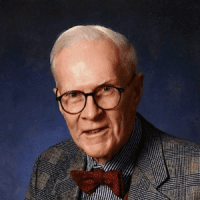The month of November saw five important meetings, both external and internal to the AHA, in which headquarters staff participated.
Early in the month the annual fall meeting of the American Council of Learned Societies (ACLS) took place in Miami Beach. November meetings of the ACLS bring together the executive directors or chief operating officers of the fifty-three humanities’ and social sciences’ learned societies that make up the ACLS. The meetings provide a clearinghouse for exchange of experiences and lore between the officers and a chance to discuss the state of the humanities in depth with the ACLS president, Stanley N. Katz. Topics such as copyright and electronic publishing, choice of annual meeting sites, how to protect endangered departments, and international activities, as well as exploring the convention-worthiness of the meeting-site city, make the event exceptionally useful to the member-society participants.
The Association’s Research Division, chaired by outgoing Vice President for Research Blanche Wiesen Cook, met in Washington November 7–8. The division considered carefully seventy-eight requests for research grants from the AHA’s Bernadotte Schmitt fund and awarded eleven grants totaling $5,000 after long discussion. The division then reviewed the status of various fund drives undertaken on behalf of one new and two long-established book prizes under its aegis.
Shaken by reports that the voters of Cincinnati, site of the January 1995 AHA annual meeting, had voted by a large majority to remove the explicit protection for gays and lesbians contained in a sweeping city civil rights ordinance, the division unanimously voted to ask the AHA Council to relocate the 1995 annual meeting to another site, as well as to ask that future hotel and meeting place contracts contain language to permit cancellation in case of discriminatory action. Although a federal judge has temporarily enjoined against the vote’s being implemented, the issue is now in the hands of the Council’s Executive Committee and will undoubtedly be on the Council’s agenda January 6 and 9 at its sessions in San Francisco.
The division asked the Council and the incoming Vice President for Research, William G. Rosenberg, to undertake the five-year evaluation of the performance of the editor of the American Historical Review, mandated by the Association bylaws. Regretting deeply that editor David Ransel has asked not to be renewed for another term after the end of his current appointment, the division also asked the Council to establish a search committee to seek a successor for him.
The division was pleased with reports of great progress on the third edition of the Guide to Historical Literature, which is on schedule and expected to be off press in time for the January 1995 annual meeting. It also welcomed the opening of work on the Hispanic Archives project being undertaken under AHA sponsorship at the University of Florida.
The AHA was represented at the annual meeting in Washington of the Consortium of Social Science Associations, one of the three advocacy organizations in which it participates, on November 14–15.
On November 10, AHA staff provided backstopping for President-elect Thomas C. Holt in a three-and-one-half-hour conference call with the elected Committee on Committees, which he chairs. In its marathon teleconference, the committee agreed on seventeen chairpersons, thirty-six prize and joint committee members, and three delegates to other organizations, as well as at least one alternate for each position, to be recommended to the Council for appointment in January.
Last but not least, on November 22, headquarters staff, representing both the AHA and the OAH, participated in a Library of Congress meeting called to discuss the library’s plans for the future, descriptions of its holdings, and the many problems it faces. Representatives of a number of learned societies as well as the president of the ACLS were present. We were modestly heartened to hear the Librarian of Congress repeat an earlier pledge that in a couple of years, when present security problems are resolved, he hopes to be able to explore a very limited reopening of the library’s stacks to a few scholars, chiefly those whose work is most damaged by the present closed-stack policy.

